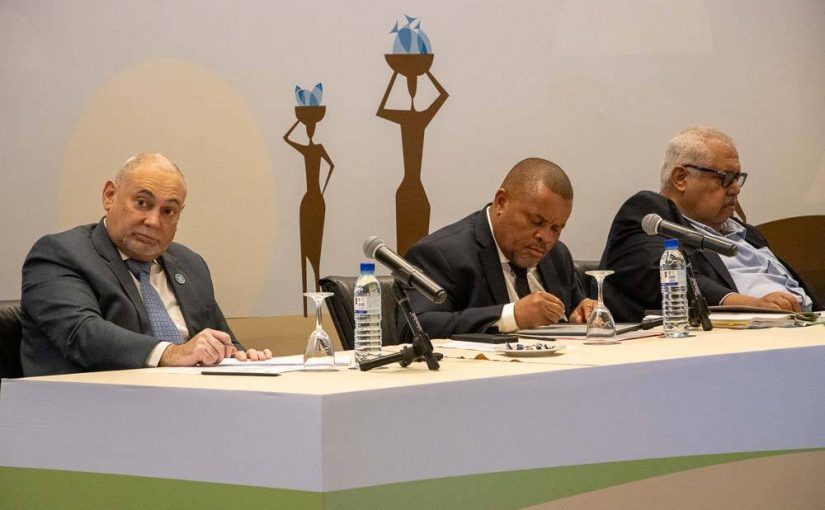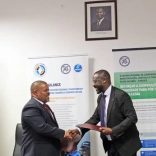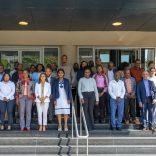Agreement signed for Mozambique to host SADC Fisheries Monitoring Centre in KaTembe
Mozambique: Minister calls for competitive farming to cut food imports

Photo: Ministério da Agricultura, Ambiente e Pescas
Mozambique’s agriculture minister on Thursday called on farmers to focus on competitive production, criticising the continued dependence on food imports to supply the national market and saying the country has both the capacity and resources to meet demand.
“If our producers, from small-scale farmers upwards, all come together with this vision that it is necessary to produce competitively to satisfy the market, we will be in a position to make our agricultural sector competitive and sustainable,” said Roberto Mito Albino.
He was speaking in Maputo during the first meeting of the Agricultural Sector Coordination Committee (CCSA), a multisectoral body that brings together social and economic actors and international cooperation partners to improve coordination in implementing agricultural policies, strategies and programmes.
Minister Roberto Albino said Mozambique wants to focus on agriculture as a business, noting that the sector is crucial to the country’s development.
“We have always said and reiterated that the main objective in the agriculture, environment and fisheries sectors is food production. Mozambique cannot continue to depend, as it does today, on imported food when we have the technical and human conditions to produce food for the basic basket competitively,” he said.
According to the minister, “production for export must be prioritised”, but above all, it must also help to replace imports.
“Now that foreign currency is in short supply, our vulnerability to food imports has become much clearer,” he added.
The minister urged the private sector to make funds available to finance entrepreneurial initiatives in agriculture, calling for new repayment models appropriate to the sector.
“We have to create financial instruments that attract anyone with the technical skills to do what they do best, to produce food as a priority,” he said.
The government also wants to modernise the way technicians and producers interact, saying it will focus on the use of information technology to make communication more flexible and reduce delays.
“If we want to increase production, it means we have to protect our animal and plant health and strengthen inspection and laboratory services. There is no longer any room for fake seeds (…). We want to declare open war on those who falsify seeds,” Albino concluded.
On Wednesday, Germany announced €45.5 million in funding through the German Development Bank (KfW) to finance agricultural initiatives by micro, small and medium-sized enterprises (MSMEs).
The financing mechanism for sustainable rural development, known as FINOVA, was launched in Maputo at a ceremony during which Mozambique’s Minister for Planning and Development, Salim Valá, emphasised the German fund’s commitment to generating more jobs and income.
Valá said that this type of financing helps to materialise the government’s “plans to replace imports and create more jobs”.
Mozambique has more than 4.5 million farms, the “vast majority” of which are small-scale operations on less than two hectares, Valá said.
“Only 2.5% of the cultivated area has irrigation, and less than 10% of farmers have access to formal credit or structured technical assistance,” he added.












Leave a Reply
Be the First to Comment!
You must be logged in to post a comment.
You must be logged in to post a comment.